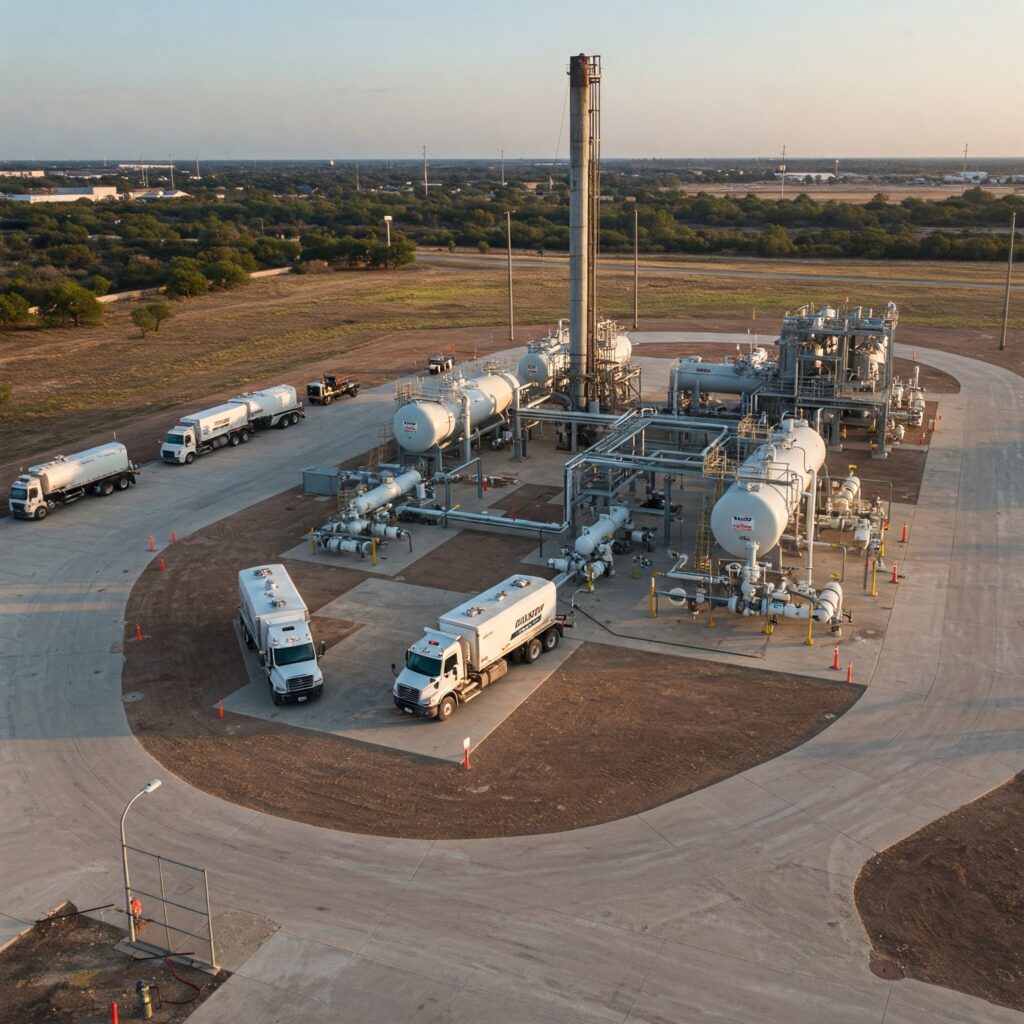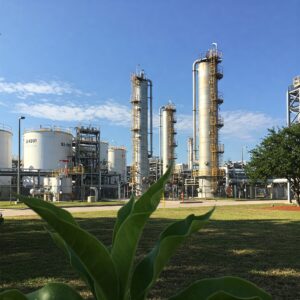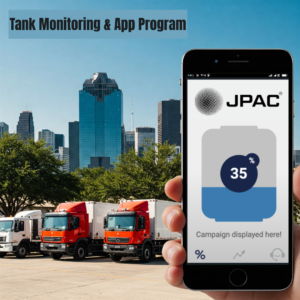Understanding Fuel Risk and Its Impact on Businesses
Fluctuating fuel prices and supply chain disruptions can create significant challenges for businesses across industries. Without a solid risk management strategy, companies may face unpredictable operational costs, supply shortages, and inefficiencies. Fortunately, energy solutions that focus on fuel risk management can help businesses stabilize costs, secure fuel supply, and improve long-term financial planning.
This article explores how businesses can mitigate fuel-related risks by leveraging energy solutions, strategic procurement, and advanced technology.
Why Fuel Prices Fluctuate and How It Affects Your Business
Fuel prices are influenced by multiple factors, from geopolitical events to seasonal demand shifts. Businesses that rely on fuel—whether for fleets, industrial machinery, or facility operations—must account for these fluctuations to avoid sudden cost increases.
Key factors that impact fuel prices include:
- Global Oil Market Trends: Crude oil prices dictate fuel costs, and any disruption in supply, such as refinery outages or geopolitical instability, can drive prices up.
- Seasonal Demand: Cold winters increase demand for heating oil, while summer travel raises gasoline prices. Businesses must plan accordingly to avoid peak costs.
- Regulatory Changes: Environmental policies, fuel tax adjustments, and emissions regulations can all influence fuel expenses.
- Natural Disasters and Supply Chain Disruptions: Hurricanes, floods, and logistical bottlenecks can restrict fuel availability, driving up prices.
By implementing energy solutions that focus on cost control and supply security, businesses can minimize the impact of these unpredictable factors.
Strategic Fuel Procurement: Managing Costs and Supply Stability
A well-planned fuel procurement strategy is essential for businesses seeking to reduce exposure to market volatility. By working with reliable fuel suppliers and adopting energy solutions, companies can optimize their fuel purchasing decisions.

Effective Procurement Strategies Include:
- Fixed-Price Contracts: Businesses can lock in fuel prices to avoid sudden spikes, ensuring predictable budgeting.
- Fuel Hedging: A financial strategy that protects against price swings by securing future fuel purchases at set rates.
- Bulk Purchasing Agreements: Companies with high fuel usage can negotiate lower prices through long-term contracts.
- Diversified Fuel Sourcing: Using multiple suppliers and fuel types (diesel, ethanol, or natural gas) prevents over-reliance on a single source.
Industries such as logistics, construction, and manufacturing can greatly benefit from energy solutions that integrate strategic procurement with real-time market insights.
The Role of Fuel Risk Management Programs
Fuel risk management programs offer structured strategies to help businesses navigate market uncertainty. These programs combine energy solutions with financial planning to stabilize fuel costs and ensure supply reliability.
Benefits of Fuel Risk Management Programs:
- Price Stability: Businesses can better forecast expenses with pricing strategies that minimize financial risk.
- Custom Procurement Plans: Tailored fuel purchase plans based on a company’s operational needs.
- Supply Chain Security: Ensures fuel availability during emergencies or disruptions.
- Market Monitoring & Data Insights: Businesses receive real-time updates to optimize fuel purchasing decisions.
- Operational Efficiency: Integrates digital tools such as tank monitoring and automated scheduling to streamline fuel management.
Industries with high fuel dependency—including agriculture, government, and transportation—can enhance efficiency and cost control by leveraging energy solutions through these programs.
Technology’s Role in Fuel Risk Management
Modern energy solutions rely on technology to improve fuel management, reduce costs, and increase efficiency. Businesses can leverage digital tools to track fuel usage, predict price trends, and automate supply chain processes.
Key Technologies Enhancing Fuel Management:
- Fuel Monitoring Systems: Real-time data helps businesses prevent fuel waste and detect inefficiencies.
- Example: A construction company can track fuel consumption across multiple job sites to optimize usage.
- Automated Tank Monitoring: Smart sensors schedule refills to prevent unexpected shortages.
- Example: A logistics company with multiple warehouses ensures seamless fuel supply without manual intervention.
- Predictive Analytics: AI-powered market insights help businesses make smarter purchasing decisions.
- Example: An agricultural operation can time its fuel purchases before seasonal price increases.
- Fleet Management Software: GPS-integrated tools optimize routes and improve fuel efficiency.
- Example: A trucking company reduces fuel consumption by rerouting vehicles based on real-time traffic data.
- Cloud-Based Fuel Management Platforms: Businesses can monitor contracts, inventory, and price alerts from a single dashboard.
By integrating these energy solutions, companies can optimize fuel operations and safeguard against price fluctuations.

Protecting Your Business from Fuel Market Volatility
Fuel price uncertainty can pose a serious financial risk, but companies that take proactive steps can minimize exposure and maintain stability. Implementing the right energy solutions allows businesses to manage costs effectively and avoid operational disruptions.
Key Takeaways for Fuel Risk Management:
- Lock in Fuel Costs: Fixed-price contracts and hedging strategies protect against market volatility.
- Strengthen Supplier Relationships: Reliable fuel partnerships ensure uninterrupted supply.
- Use Technology-Driven Solutions: Real-time tracking and predictive analytics improve purchasing decisions.
- Plan for Emergencies: Backup fuel plans and alternative sourcing strategies reduce downtime risks.
No matter the industry, a well-designed fuel risk management strategy ensures long-term success. Energy solutions tailored to a business’s unique needs can help mitigate price fluctuations and secure a dependable fuel supply.
JPAC Global Energy: Your Partner in Fuel Risk Management
Navigating fuel risk management requires expertise and strategic planning. JPAC Global Energy provides businesses with customized energy solutions, competitive pricing, and secure fuel contracts to help minimize financial exposure.
Don’t wait for market fluctuations to impact your bottom line. Visit our website or click our contact form now to learn more about how our energy solutions can help you optimize fuel costs and protect your business.






